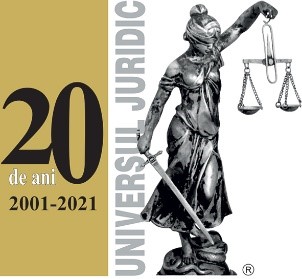Când terţul este minor
oanaghita[at]drept.ucv.ro
Cuvinte cheie:
beneficiary third party, minor, enforceability, the best interest of the child, non pecuniary damagesRezumat
In this study, we have tangentially attempted to identify the situation of the minor third party in the matter of private law, however, without succeeding in delimiting some rules or a special legal regime thereof.
Among various matters in which we find the minor acting as third party, we mention: stipulations for the benefit of third parties in the insurance contract, tort liability, non pecuniary damages, salary rights and family relationships.
Starting from the notion of the capacity of third party and enforceability regarded from the minority perspective, we have established the manner in which the minor child may participate in the conclusion of legal instruments (through the agency of the legal representative, and in the case of certain legal instruments, with the authorization of the guardianship court). However, this rule shall not apply when the minor child acts as third party.
The minor child’s legal representatives – in principle, his or her parents – shall intervene in the obligational legal relationships only in virtue of the right and duty to manage the child’s property. It has been considered that in this way it is ensured the additional protection of the minor child, resulting from the need for covering the lack of judgment, and not by his or her special status in each legal relationship to which he or she is a party to. Hence, it is avoided an exaggerated deviation from rules and the security and stability of the civil legal circuit shall be ensured in this way. The legislator claims, therefore, from the major person representing the child, the same diligence which should be made in the case of each legal instrument.
Although the principle of the minor child’s best interest is general, which should also be applied to him or her when acting as third party, we notice that the minor child has no privileged position in relation to the major person, for example: when the third party is a minor, legal equality of parties specific to civil law shall prevail, and not the principle of the minor child’s best interest, which shall not provide any special treatment not even to the third party. However, we shall demonstrate in this study that there are situations when the regulation method specific to the common law cannot be applied and some priority should be granted to the minor child’s interest. These two rules weighed against move from one legal relationship to another, and the balance is difficult to find.
Furthermore, we have attempted to determine the procedural position of the minor child when establishing his or her legal situation either in court or by the parents’ agreement, seeing also that this issue has no clear regulation, and literature constantly avoids to clarify the legal procedural capacity of the child.
Publicat
Versiuni
- 24-04-2023 (2)
- 13-09-2022 (1)









